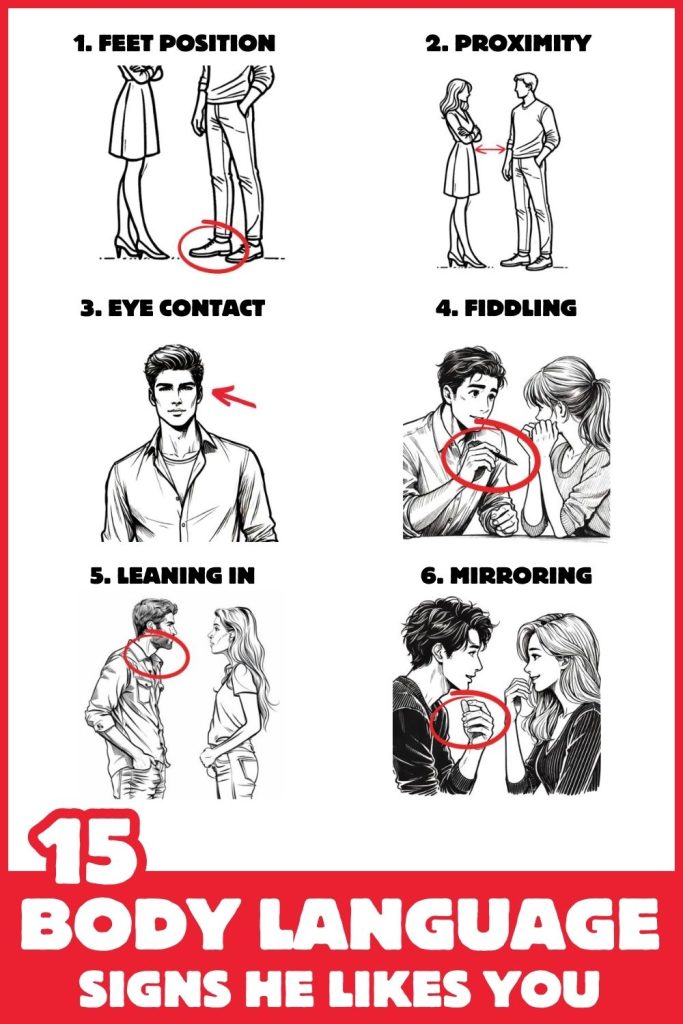Body Language Biting Lower Lip
Have you ever wondered what someone’s body language means when they bite their lower lip? Well, you’re not alone! Body language can speak volumes about a person’s thoughts and emotions without them saying a word. And when it comes to biting the lower lip, it’s no exception. In this article, we’ll explore the intriguing world of body language and dive into what it means when someone bites their lower lip.
When it comes to body language, every little detail matters. From the way we stand to the expressions on our faces, our bodies are constantly communicating with the world around us. And one of these intriguing gestures is biting the lower lip. Are they nervous? Anxious? Deep in thought? The answer might surprise you. So, let’s delve into the world of body language and uncover the hidden messages behind this fascinating behavior.
Have you ever caught yourself biting your lower lip? It’s a common habit, and sometimes we do it without even realizing it. But did you know that this seemingly insignificant action can reveal a lot about our inner state? Whether it’s a sign of stress, self-soothing, or even a subconscious flirtation, biting the lower lip has a variety of meanings that can give us a unique insight into someone’s thoughts and feelings. So, let’s explore the secrets of this intriguing body language cue.

The Intriguing Body Language of Biting Lower Lip: What Does it Mean?
Body language is an incredibly powerful form of communication that often reveals our true thoughts and feelings. One intriguing gesture that has captivated the curiosity of many is the act of biting the lower lip. It is a subtle yet significant movement that can convey a myriad of emotions and intentions. In this article, we will delve into the world of body language and explore the different meanings behind this fascinating behavior. From attraction and nervousness to self-soothing and contemplation, biting the lower lip can offer valuable insights into a person’s inner world.
1. Signs of Attraction
One of the most common interpretations of lip biting is that it is a sign of attraction. When someone finds another person attractive or desires them, they may engage in this behavior unconsciously. Biting the lower lip in this context is often seen as a flirtatious gesture, as it draws attention to the lips, which are considered a sensual and enticing feature. It can be a way for someone to signal their interest and invite further interaction with the person they are attracted to.
In addition to physical attraction, lip biting can also indicate emotional attraction. When someone is deeply interested in another person, they may find themselves biting their lower lip as a subconscious way to show their fascination and captivation. It can be an involuntary response to the excitement and anticipation that comes with being attracted to someone on a deeper level.
It is important to note that lip biting alone should not be taken as a definitive sign of attraction. It should be observed in conjunction with other body language cues, such as prolonged eye contact, leaning in, and mirroring behavior, to get a more accurate understanding of someone’s feelings.
2. Nervousness and Anxiety
Lip biting is often associated with feelings of nervousness and anxiety. When someone is experiencing stress or apprehension, they may find themselves biting their lower lip as a way to self-soothe and release tension. It can be a subconscious attempt to provide comfort in a difficult or overwhelming situation.
This behavior is common in situations such as public speaking, job interviews, or first dates, where there is a heightened sense of pressure and uncertainty. By biting their lower lip, individuals may attempt to redirect their anxious thoughts and focus their attention on the physical sensation instead.
In some cases, chronic lip biting or excessive gnawing on the lower lip can be a sign of an underlying anxiety disorder, such as generalized anxiety disorder or obsessive-compulsive disorder. If lip biting becomes a compulsive and repetitive behavior that interferes with daily functioning, it is advisable to seek professional help.
3. Deep in Thought and Contemplation
Lip biting can also be an indication that someone is deep in thought or contemplating a decision. When faced with complex or challenging situations, people may bite their lower lip as a way to concentrate and focus their attention. It can serve as a physical anchor during moments of intellectual or emotional reflection.
In these instances, lip biting is often accompanied by other gestures such as chin stroking, furrowed brows, or tapping fingers. These actions collectively show that the individual is engaged in a process of introspection and analysis. It is a visual cue that they are carefully considering their options and weighing different perspectives.
Moreover, biting the lower lip can sometimes be a sign of secrecy or withholding information. When someone is hesitant to disclose certain details or is contemplating whether to share something, they may unconsciously bite their lip as a way to restrain themselves. It can be an indication of internal conflict or hesitation about revealing their thoughts or emotions.
Additional Insights into the Body Language of Biting Lower Lip:
4. Cultural Variations in Interpretation
5. Gender Differences in Lip Biting
6. Lip Biting and Confidence
7. Tips to Interpret Lip Biting Accurately
8. Misconceptions and Common Myths
9. Comparisons: Lip Biting vs. Other Body Language Cues
10. Famous Examples of Lip Biting in Pop Culture
11. Connotations in Different Social Settings
12. Psychological Underpinnings of Lip Biting
13. Benefits and Drawbacks of Lip Biting
14. Recognizing Lip Biting in Video Calls and Online Interactions
15. The Role of Lip Biting in Romantic Relationships
16. Body Language Analysis in Detective Work and Psychological Profiling
17. The Evolutionary Significance of Lip Biting
18. Tips for Using Lip Biting Effectively
19. Cultural Depictions and Symbolism of Lip Biting
20. Practicing Mindfulness to Control Lip Biting
In summary, the act of biting the lower lip is a fascinating form of body language that can convey various meanings and emotions. It can be a sign of attraction, nervousness, deep thought, or even secrecy. Understanding the context and other accompanying body language cues is crucial in accurately interpreting this gesture. By paying attention to these subtle signals, we can gain valuable insights into the thoughts and emotions of those around us.
Key Takeaways: Body Language of Biting Lower Lip
– Biting the lower lip can indicate nervousness or anxiety.
– It can also be a sign of attraction or desire.
– Pay attention to other body language cues to fully understand the meaning.
– Biting the lower lip excessively may suggest stress or insecurity.
– Context and individual differences are important in interpreting body language cues.
Frequently Asked Questions
Welcome to our Frequently Asked Questions section on the topic of body language and biting the lower lip. Here, we will explore the meaning behind this particular gesture and what it may indicate in different situations. Read on to learn more!
1. Why do people bite their lower lip when communicating?
When someone bites their lower lip during communication, it can often be a subconscious action that reveals underlying emotions or thoughts. This gesture may indicate nervousness or anxiety, as the person may be using it as a way to release tension or to divert attention from their true feelings. It can also be a sign of deep concentration or focus, as the person is engaging in deep thought while biting their lip.
However, it’s important to consider individual differences and context when interpreting body language. Some people may have developed the habit of lip biting as a self-soothing mechanism, while others may do it out of habit without any significant meaning behind it. As with any body language gesture, it’s essential to observe other accompanying cues and pay attention to the overall context to gain a more accurate understanding.
2. Can biting the lower lip indicate attraction or flirtation?
In certain cases, biting the lower lip can indeed be a non-verbal cue associated with attraction or flirtation. When someone is feeling attracted to another person, they may subconsciously bite their lip as a way to signal their interest or to appear more appealing. This gesture can be seen as a form of self-touching, where the person is drawing attention to their lips, which are often associated with sensuality.
However, it’s essential to note that lip biting alone is not a definitive indicator of attraction. It should be considered alongside other body language signals such as prolonged eye contact, leaning in closer, or mirroring the other person’s actions. Paying attention to the overall body language clusters can provide a more accurate understanding of someone’s level of interest or attraction.
3. Is biting the lower lip always a negative sign?
No, biting the lower lip is not always a negative sign. While it can indicate nervousness or anxiety in some cases, it can also be a neutral or even positive gesture depending on the context. In certain situations, lip biting can be a way for someone to convey anticipation, enthusiasm, or excitement. It may be a subconscious way of channeling energy or expressing eagerness for something to happen.
As with any body language cue, it’s crucial to consider the overall context and observe other accompanying signals. Factors such as facial expressions, tone of voice, and body posture can help provide a more accurate interpretation of whether lip biting is a negative, neutral, or positive sign in a particular situation.
4. Can biting the lower lip be a sign of deception?
While there is no definitive proof that biting the lower lip is always a sign of deception, some individuals may exhibit this gesture when they are feeling nervous or uncomfortable due to hiding the truth. This can be especially true if the person is engaged in a conversation where they feel exposed or under scrutiny, such as during an interrogation or when sharing sensitive information.
However, it’s essential to exercise caution when interpreting body language as a sole indicator of deception. Deception is a complex behavior and should be assessed based on several other cues, such as changes in speech patterns, inconsistent eye contact, or contradicting statements. It’s best to consider lip biting alongside these cues and rely on a more holistic approach when attempting to detect deception.
5. How can I accurately interpret lip biting in different cultural contexts?
It’s vital to remember that body language cues can vary across cultures, and the interpretation of lip biting may differ as well. In some cultures, lip biting may carry different meanings or be considered impolite or offensive. To accurately interpret lip biting in different cultural contexts, it’s essential to educate yourself about the specific cultural norms and practices.
For accurate cross-cultural communication, it’s advisable to learn about the cultural expectations, values, and non-verbal cues of the specific culture you are interacting with. A simple gesture like lip biting can have different implications, so it’s crucial to approach cross-cultural communication with an open mind, cultural sensitivity, and a willingness to learn and adapt to different cultural norms and practices.
Body Language Lips and Mouth
Summary
So, remember, when someone bites their lower lip, it could mean they’re feeling anxious or nervous. This gesture is often a sign that they’re holding something in or feeling uncomfortable. However, it’s important to consider other body language cues and the context to fully understand what someone is really feeling. Pay attention to their facial expressions, tone of voice, and overall body movements to get a clearer picture.
Additionally, keep in mind that body language can vary from person to person. While biting the lower lip may generally indicate anxiety, it might mean something else for an individual. The best way to understand someone’s feelings is by having open and honest communication. Ask them if something is bothering them or offer your support if they seem anxious. By being attentive and empathetic, we can better understand and connect with others.


